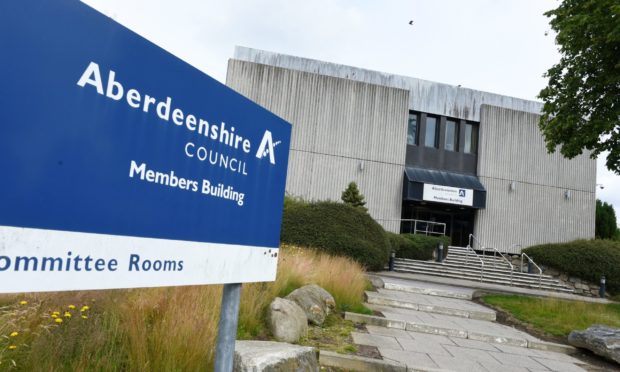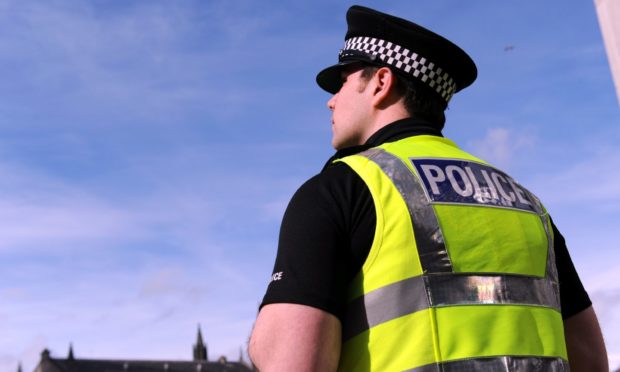Fraudsters have tried to claim more than £250,000 in Covid grants from Aberdeenshire Council in the last year.
New figures show auditors have investigated 31 allegations of fraud since May 2020 – and still have £107,000 of emergency funding erroneously paid out to eight claimants to claw back.
In total, the local authority is thought to have been taken for £269,000 in the last 12 months.
This includes people evading business rates and council tax or falsely claiming relief and housing support.
Within that figure, the business rates system was left short of just under £150,000.
Alert officials have been aided by other councils sharing details of how people have been trying to game the Covid support system.
This was rolled out at pace last year and has managed to help turn down 14 applications for relief cash suspecting foul play worth £150,500 collectively.
The totals could yet be revised, depending on the outcome of investigations now also involving police.
But, it is not thought any of the “resource intensive” inquiries have yet led to prosecutions with council bosses highlighting the “substantial” burden of proof required to successfully prove guilt in the courts.
A total of four of the council’s own employees were found to have made false applications for £2,000 grants from the government’s newly self-employed hardship fund.
Bosses are now considering disciplinary action against the workers who put in fraudulent claims.
Scottish Government guidance sets out that councils are expected to seek recovery of overpayments “including pressing criminal charges where necessary”, if fraudulent claims are found.
But local authorities will not foot the bill if unsuccessful.
Fraudsters’ details passed to police
Interim chief internal auditor Colin Harvey told councillors that Aberdeenshire officials were working on building cases with the police.
But he added that the council could bypass them and take evidence straight to prosecutors if needed.
Otherwise, staff can issue a bill for the overpayment and turn to debt collectors to recoup the cash.
He said: “Where police don’t take it forward, there are options for the council to take forward themselves.
“Those, I suspect, would be expensive options involving lengthy legal cases.
“There is also an option in certain cases to take direct to the Procurator Fiscal ourselves, not a route I’m familiar with but it is an option for certain cases.
“At this stage, I couldn’t say how many will be taken down that route.
“The best route for most cases is to issue a bill and treat it as a debt which we can then seek to recover.”
1,200 hours to overcome fraud troubles at Aberdeenshire Council
Mr Harvey explained his auditors had turned detective in the last year, and explored the full payment history of those found to have falsely claimed Covid relief cash.
That included, he said, looking at whether they have paid their business rates and council tax – leading to more owed money being uncovered in some cases.
The anti-fraud operation, drawing in council staff who would otherwise be involved in the internal audits, logged more than 800 hours in the year 2020/21 – the equivalent of 60% of a full time staff member’s yearly workload.
Auditing chiefs think it will take another 400 hours to get to the bottom of all the suspected fraud cases on their books.
But Mr Harvey said the resources spent would only be worth about a sixth of the £156,300 that the council saved, adding: “For the amount avoided, I am happy the audit time is well invested but what I don’t want is to keep investing that time.”

